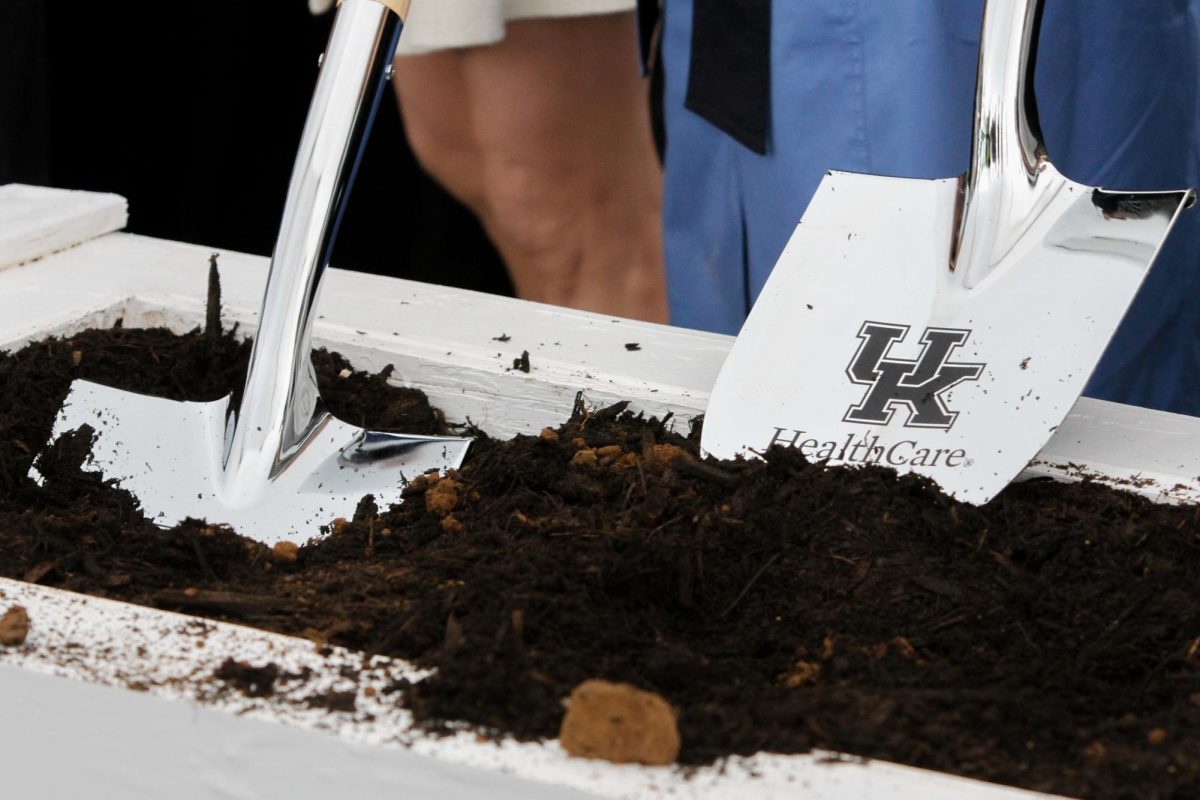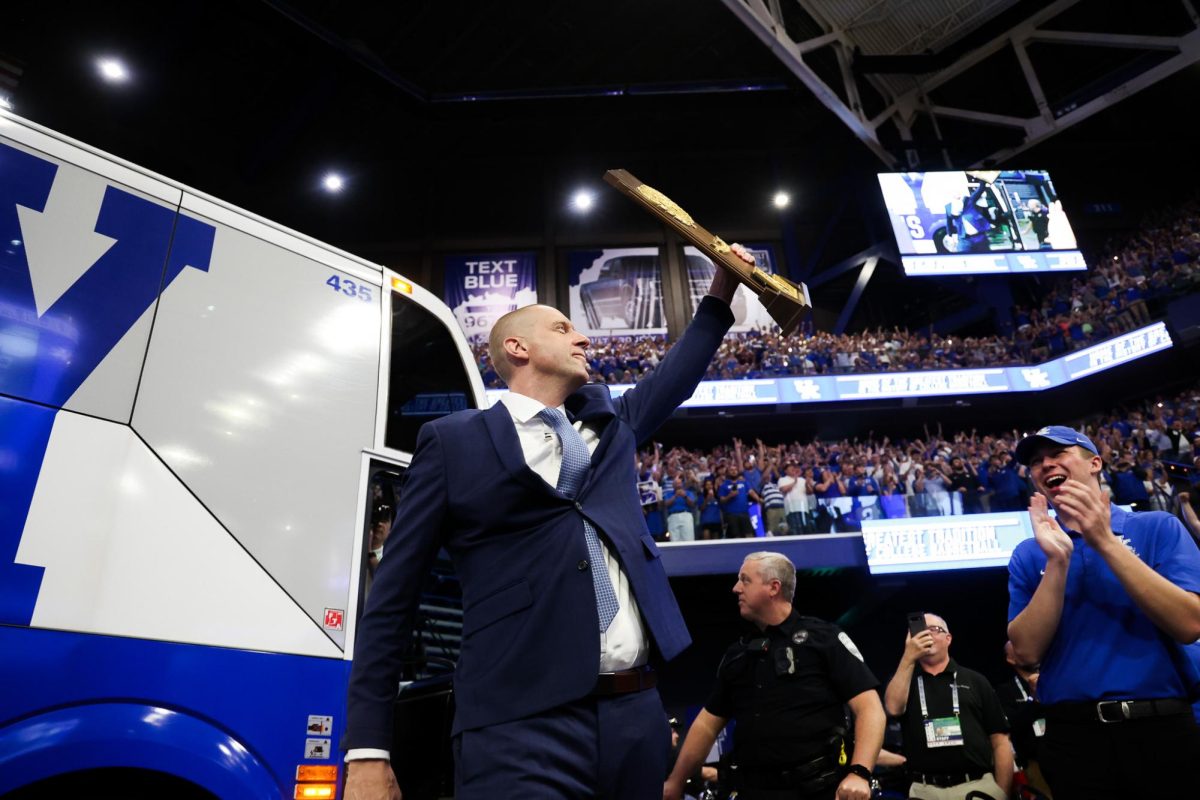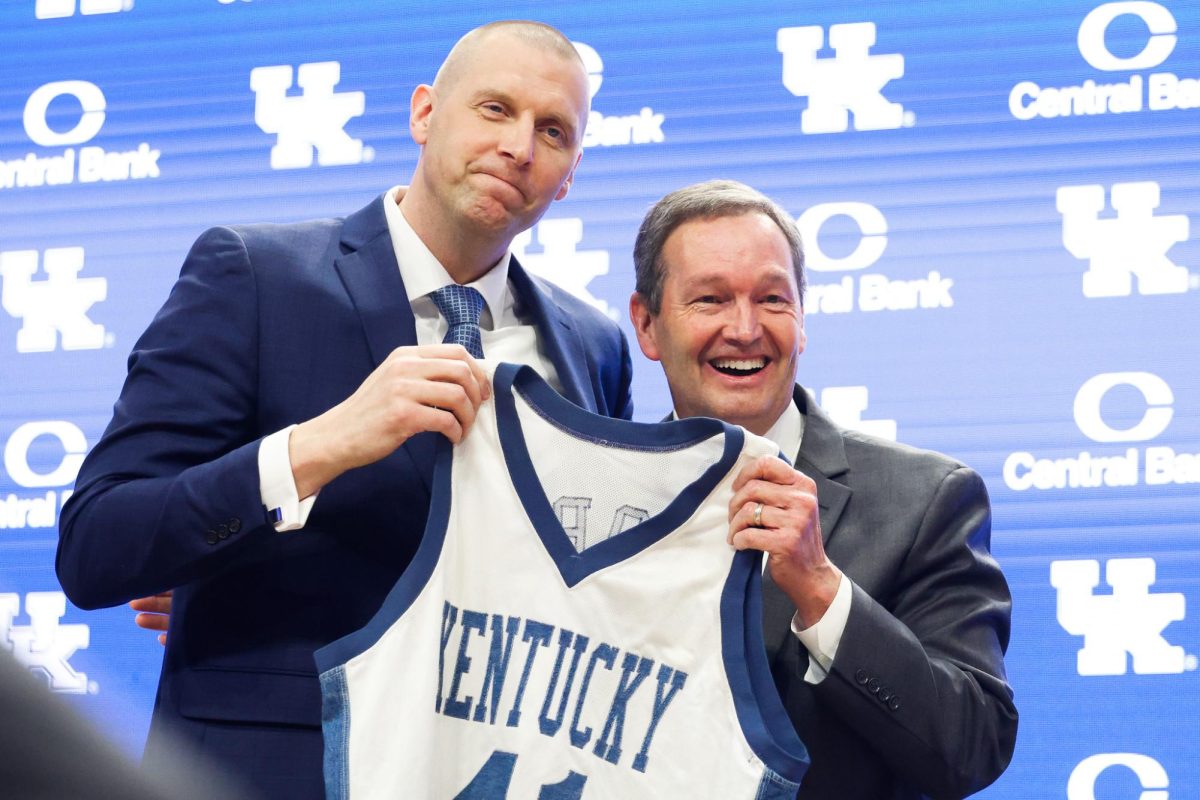Journalism isn’t for everyone, especially JoÂÂe the Plumber
January 14, 2009
RELATED STORY: ‘Elite’ media needs to return to citizen journalism roots
Apparently anyone can be a journalist.
Every talk show from Regis and Kelly to Jay Leno sends audience members to presidential campaigns, red carpets and other news events, hands them a microphone and supplies a camera guy and makes them a reporter.
We’ve all laughed at them. Watching some John Nobody try to flag down the likes of Brad Pitt or Barack Obama makes for fantastic late-night television. We chuckle at the dumb questions they come up with and find ourselves blushing as the president-elect fumbles to answer what sweet things he’s done for his wife lately. Never mind the war in Iraq, conflicts in Gaza and Israel or that the Dow is down 264 points. This is what Americans want to know.
Give a guy a microphone and a handful of questions, and he’s a journalist.
Latest case in point: Joe the Plumber. We all remember him — actual name Samuel Wurzelbacher — from the recent presidential election. He was “your average Joe,†just a plumber from Ohio who wanted to know how Obama’s economic plan would help people like him. Republican opponent John McCain threw his name around about a million times, invited him up on stage at a political rally, and soon even Saturday Night Live featured skits on Joe.
But lately, he’s given up the plunger for a microphone. He traveled to Israel for the conservative Web site, pjtv.com, and is reporting as a war correspondent there.
What’s the big deal? He’s just the average American citizen talking with Middle Eastern politicians in potentially explosive times about their relationship with the United States. Just as easy as asking Obama what his plans are for his wife on Valentine’s Day. Ask a question, get an answer — he’s a journalist.
But it’s not the same at all and the questions aren’t always easy ones to ask. The average American can’t be the journalist with the microphone sent to represent the country, because the average American is ignorant to most of the policies and governmental relations in their own country.
Wurzelbacher is just your average American citizen. He isn’t a licensed plumber, only working as such in Toledo, Ohio, according to the Associated Press and he owes almost $1,200 in back taxes. Just the average guy.
Journalists spend several hours — even days and weeks — preparing for an interview, especially in the case of Middle Eastern politics. Even the minor things like how they phrase a question or how they say hello can effect how the subject views the interviewer, the media they are working for, and even their country.
If Joe is going to ask the tough questions, he’d better be ready for the tough answers that follow. He’d better be ready to cradle the disease-ridden countries of the Third World, talk peace with the leaders of the United Nations, be ready for the people he’ll find in Iraq, Afghanistan, Palestine, Iran, Pakistan, Somalia, Rwanda, and have a line of questions prepared for Mahmoud Ahmadinejad.
CNN’s chief international correspondent Christiane Amanpour said in her acceptance of the 4th Estate Award from the National Press Association, it takes becoming the 16th member of the UN to be a journalist.
“You have to read the news every day to be a good journalist,†Amanpour said at the awards dinner. “You have to know what’s going on in the world better than everyone else and be able to teach the people you’re interviewing lessons in what they’re best at. Until I can do that, I always feel a little unprepared.â€
Unprepared.
Transformed from a plumber to a campaigning celebrity to a war correspondent over night. Go ahead — turn Joe loose in Israel. Give him a microphone and a handful of questions. Make him a journalist representing the United States. He’ll be fine.






















































































































































